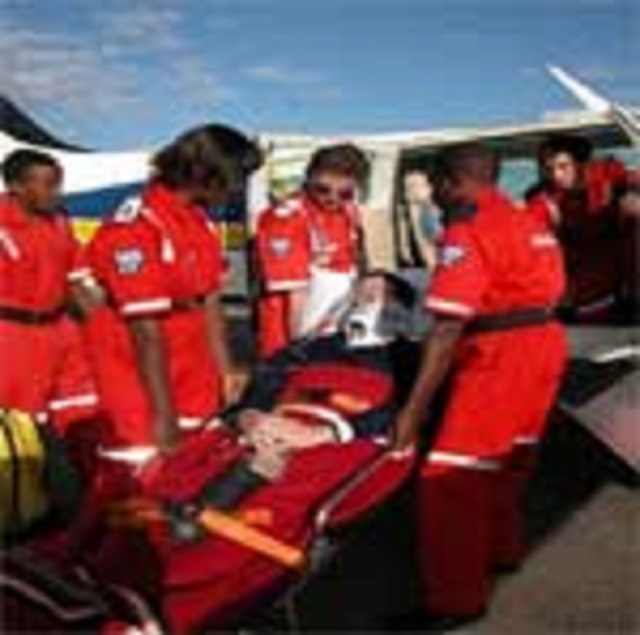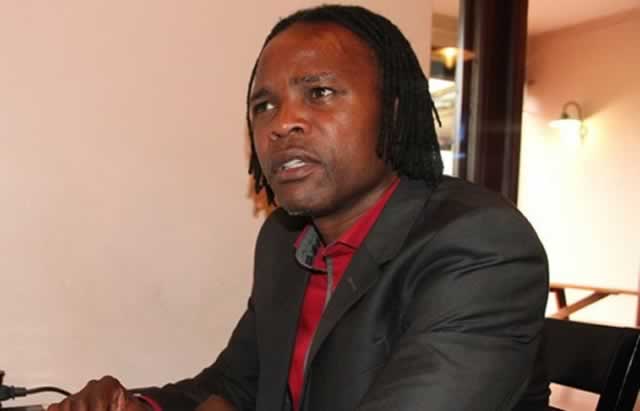Helping people under all circumstances

Crystabel Chikayi, Feature
Paramedics have to see factious scenes. What others see in action movies, paramedics see in real life. Accident scenes, blood pool, blood flowing from open wounds, ashen heads, and bellies cut open with intestines pouring out – total horror
But the heartbeat of paramedics is in helping people — those in grave circumstances that could cost them their lives.
As first respondents to medical emergencies, paramedics are critical in ensuring patients are stabilised and access medical facilities timely in cases of life threatening diseases and fatalities.
Without having to think twice, they step on the accelerator, rushing to pick up patients from accident scenes or their homes to get them to hospitals where they can get advanced medical care.
Among these everyday heroes who live to serve others are Emergency Medical Rescue Ambulance Service (EMRAS) paramedics.
EMRAS paramedics are loved by many people whom they have helped and among them are Mrs Ndakaitei Padzura (46) and her baby Emras, who have a striking testimony.
Due to pregnancy-related complications, Mrs Padzura had to be transported from a remote clinic to a district hospital where she eventually delivered safely and out of appreciation to the paramedics that ensured her safe transportation, named her baby Emras.
“We could never have made it without EMRAS’ help. I’m grateful for what EMRAS did for me. I didn’t have enough money but they still transported me to the clinic and later to the hospital. Their response was swift after we had called them. They gave me pre-labour care in the ambulance,” said Mrs Padzura.
EMRAS’ first emergency siren sounded on October 1, 2002, when the private ambulance service opened its doors to the public.
Mr Craig Turner, the director of EMRAS, which is an arm of Premier Service Medical Investment (PSMI) said his team is committed and dedicated to first class medical services.
“Initially, the vision of the ambulance service was to establish an affordable service that could meet the needs of the majority. Now, EMRAS has been successfully operating for 14 years in all corners of the country. Its success can only be attributed to the paramedics’ dedication to saving lives.
That’s what has made EMRAS grow into one of the largest private ambulance service providers in the country,” said Mr Turner.
EMRAS has eight bases with each base having at least two ambulances, a base commander and paramedics. The bases are in Harare, Bulawayo, Gweru, Masvingo, Kwekwe, Mutare, Victoria Falls and Bindura.
Mr Turner said another base would be set up in Chiredzi by the end of this month.
He said EMRAS was established to compliment not compete with government ambulance services already in existence.
“The ambulance service will continue to be of assistance to the public despite the financial challenges being experienced currently in Zimbabwe.
We’ve weathered storms in the past and have come out of them strong,” said Mr Turner.
He said all that EMRAS has done marks the beginning of a major revolution in ambulance services.
EMRAS paramedics are trained to offer basic and advanced first aid depending on the criticality of the condition of the patient on board.
Bulawayo base commander, Mr Paul Tafireyi said the ambulance service is functional 24 hours a day.
“Our mission is to offer excellent pre-hospital care and be patient-centric. I’d also like to take this opportunity to urge our clients to give us feedback, both good and bad. We expect to hear from the public whenever we falter. We aim to do a better job everyday and this is enough testimony that at least someone somewhere is appreciating our efforts to save life,” said Mr Tafireyi.
He said their paramedics are trained to be able to handle the worst of situations.
“The paramedics have to see factious scenes. What others see in action movies, paramedics get to see it in real life. Accident scenes, blood pool, blood flowing from open wounds, ashen heads, and bellies cut open with intestines pouring out — total horror.”
“We attended to a road traffic accident at Mbembesi towards the end of last month. And when we arrived, eight people were already dead, there were two survivors. At times when an accident happens, people don’t know who to call, they’ll try to call the relatives of the victims and so forth, delaying the victims from getting help. It’s advisable that everyone keep an ambulance contact detail in their phone, whether they’re on medical aid or not,” said Mr Tafireyi.
He said EMRAS does not demand cash up front – the important part is that a life gets saved.
“When we take a patient to the hospital and doctors require patients to undergo x-ray examinations – we avail ourselves and transport the patient to imaging labs where they’re checked then we take them back to the hospitals,” said Mr Tafireyi.
EMRAS does not only transport patients via road but also offer medical air transport in critical scenarios.
“In cases where patients will be very critical and the necessary medication is not available in nearby hospitals, the patient is transported via air. The crucial first aid needed will be given by the paramedics on the plane. However, our biggest challenge is that of expensive specialised equipment which we have to import. — @cchikayi











Comments